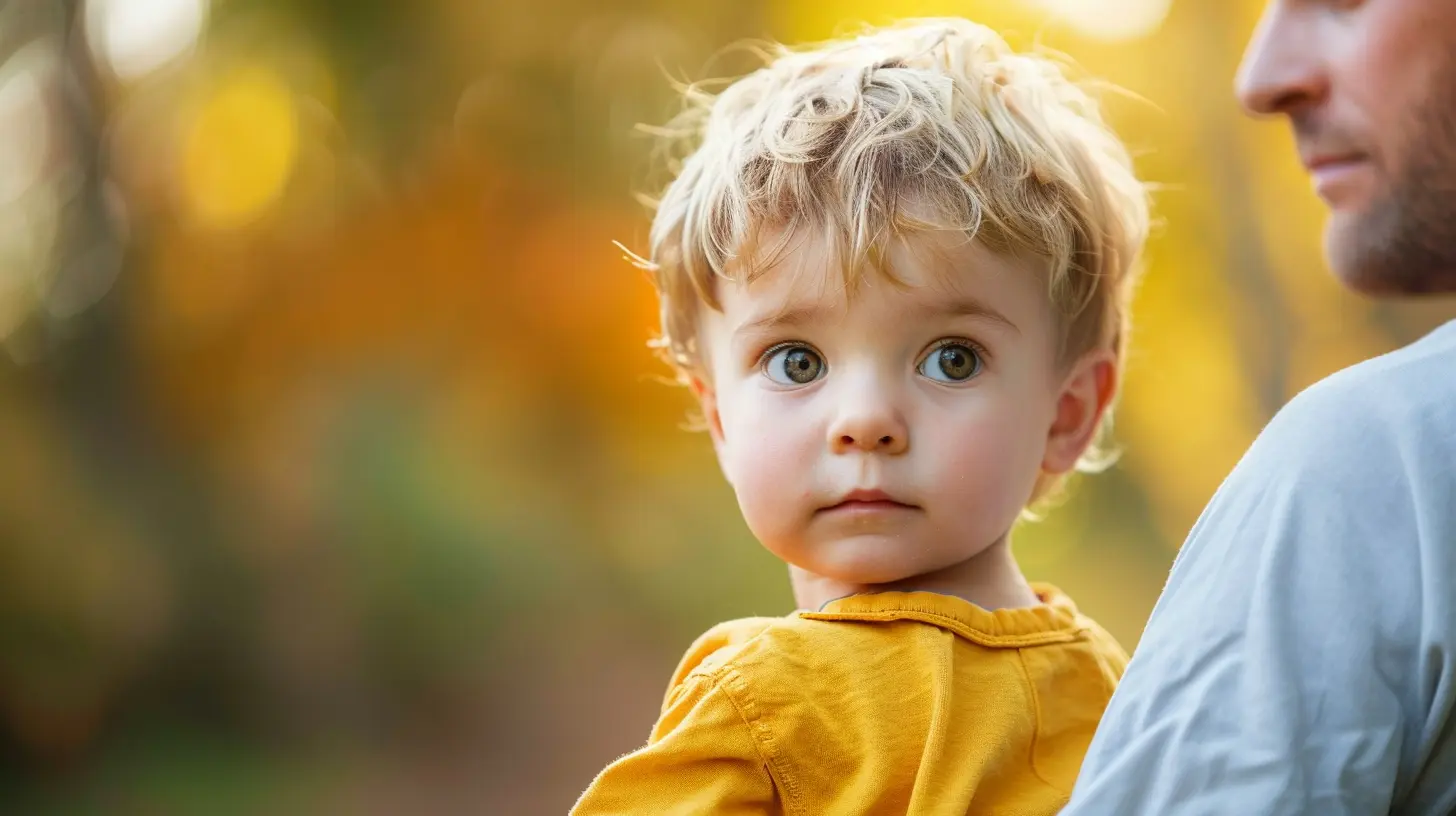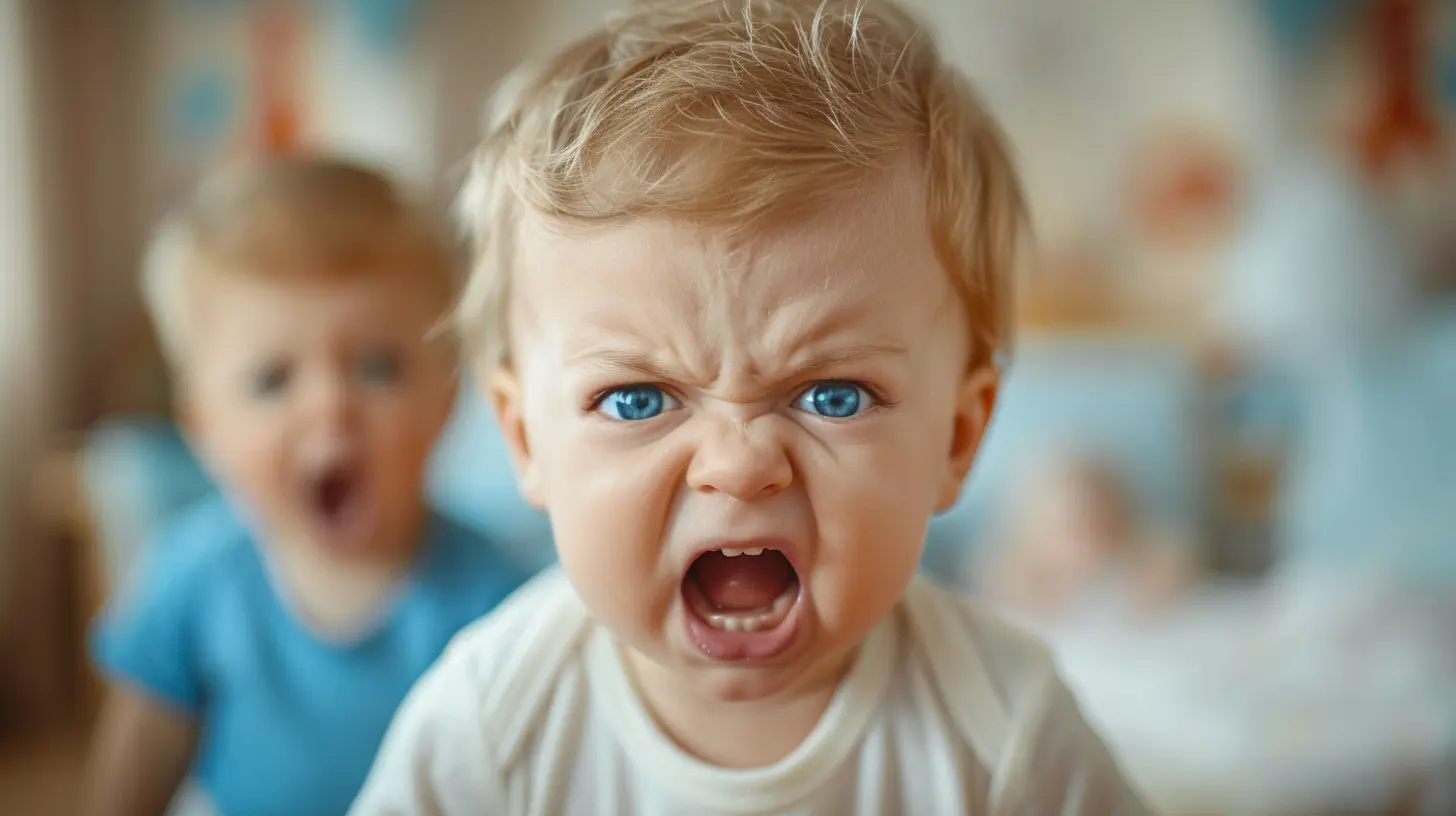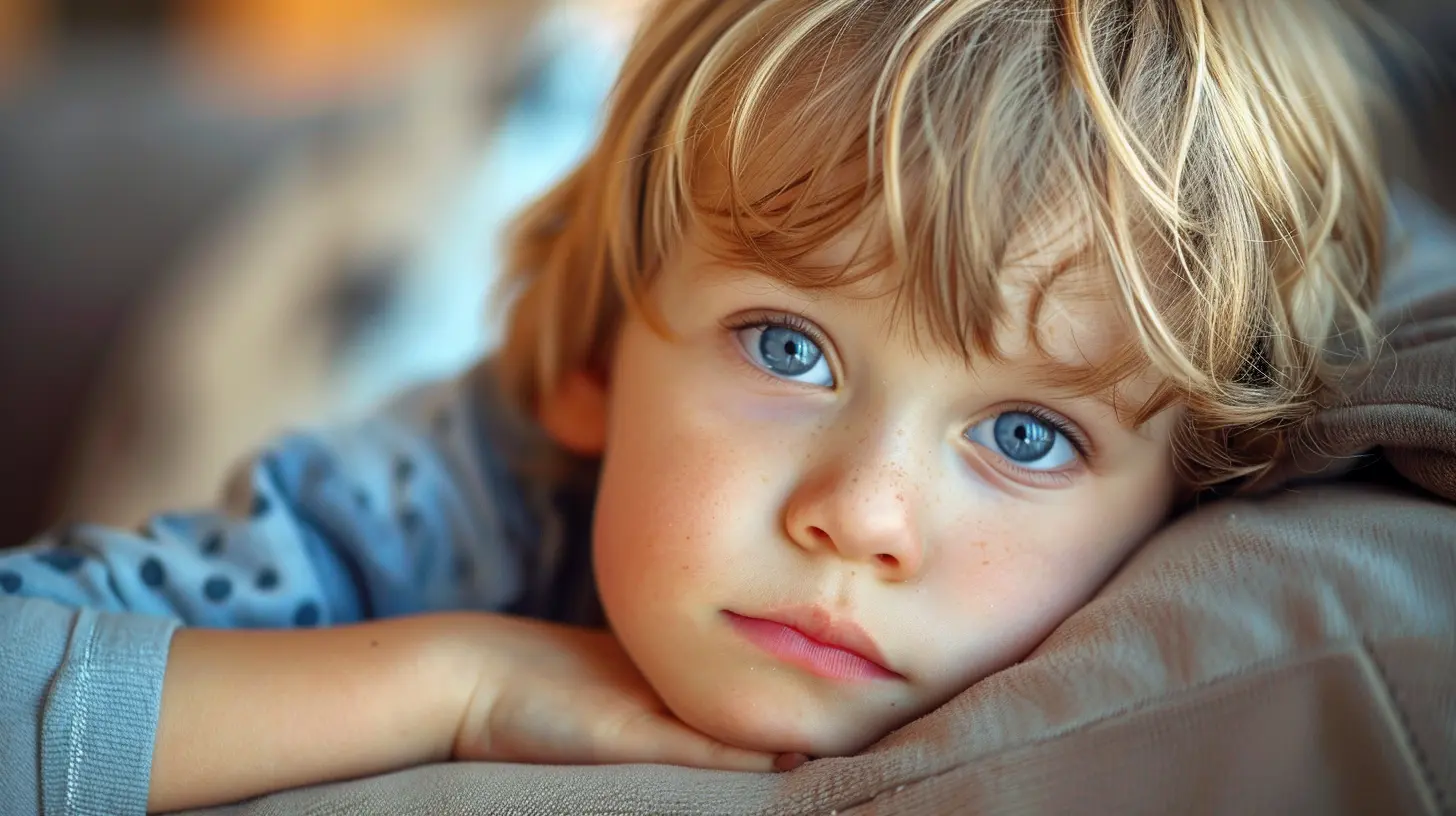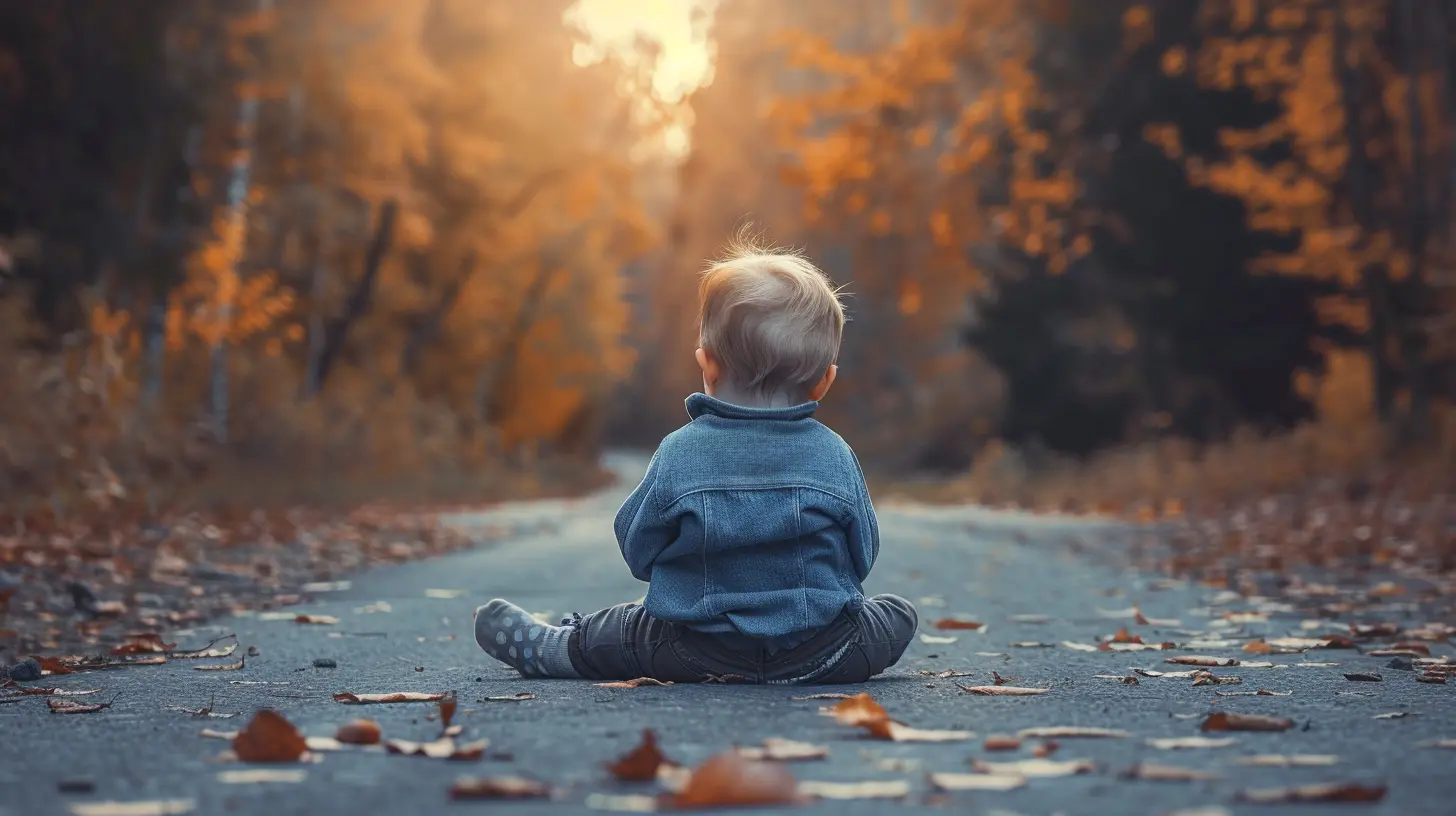Understanding Emotional Development in Toddlers: A Psychological Perspective
3 January 2025
When it comes to toddlers, emotions are a rollercoaster, right? One minute they’re giggling, the next they’re throwing a tantrum because their favorite cup is dirty. If you’ve ever found yourself wondering, “What’s going on in that little head of theirs?”—you’re not alone. Emotional development in toddlers, from a psychological perspective, is a fascinating, complex, and absolutely critical part of their overall development.
But what exactly does “emotional development” mean? And how can understanding it help parents and caregivers navigate those tricky toddler years with a bit more patience and insight? Let’s dive deep into what’s happening in your toddler’s mind and heart and how psychological theories explain these early emotional experiences.

What Is Emotional Development?
Before we dig into the specifics, let's break it down simply. Emotional development refers to how children begin to express, understand, and manage their emotions. It’s all about how they recognize and respond to their feelings and the feelings of others.For toddlers, this process can be a wild ride. At this stage, their emotional world is expanding rapidly. They’re learning to differentiate between joy, frustration, anger, sadness, and excitement—sometimes all in the span of a few minutes!
Why Is Emotional Development Important?
Emotional development forms the foundation for a child’s social skills, mental health, and overall well-being. It influences how they interact with others, cope with challenges, and build relationships. In short, it’s a big deal.By understanding what’s happening emotionally with your toddler, you can respond in ways that support their growth, rather than just trying to survive each meltdown.

The Stages of Emotional Development in Toddlers
We often focus on physical milestones—first steps, first words—but emotional milestones are just as crucial. Toddlers typically progress through various emotional stages as they grow. Let’s break these down.1. Early Toddlers (12-18 months)
This is when your little one is just starting to form a sense of self. They’re realizing that they are separate from you, which can be both exciting and terrifying. This newfound independence often leads to strong emotional reactions.At this stage, toddlers begin to experience basic emotions like happiness, anger, and fear. They also start to show empathy, such as offering you a toy if you seem sad.
Key behaviors to look out for:
- Separation anxiety (they don’t like when you leave the room)
- Tantrums (because they can’t always express what they want)
- Clinginess (because they feel a bit unsure of the world)
2. Mid-Toddlers (18-24 months)
By this age, toddlers are developing more complex emotions, such as shame, guilt, and pride. They’re also starting to understand the idea of rules and expectations, though don’t be surprised if they break them—often!This is also when the famous “terrible twos” can kick in. Why? Because toddlers are learning to assert their independence, but they don’t yet have the emotional tools to cope with frustration. Cue the meltdowns.
Key behaviors to look out for:
- Defiance (saying “no” becomes a favorite activity)
- Emotional outbursts (they want to do things themselves but often can’t)
- Developing a stronger sense of empathy (they might comfort a friend who’s upset)
3. Late Toddlers (24-36 months)
By the time they’re nearing three years old, toddlers have a much broader emotional palette. They can express love, jealousy, frustration, and even a sense of justice. They’re beginning to understand that their actions have consequences, both for themselves and others.At this stage, toddlers are also developing self-regulation skills—though they’re far from perfect at it. They’re learning to wait for things they want and to manage their impulses (sometimes).
Key behaviors to look out for:
- Increased ability to share and take turns (though sharing is still hard!)
- More sophisticated problem-solving abilities
- Growing interest in friendships and social play

The Role of Attachment in Emotional Development
One of the most important factors influencing a toddler’s emotional development is their attachment to their caregivers. This is where psychology plays a huge role.What is Attachment?
Attachment refers to the emotional bond between a child and their caregiver. According to renowned psychologist John Bowlby, children develop attachment styles based on how their caregivers respond to their needs. These attachment styles can influence not only emotional development during the toddler years but social and emotional functioning throughout life.Types of Attachment
1. Secure Attachment: A securely attached toddler feels confident that their caregiver will meet their emotional needs. This allows them to explore the world with confidence, knowing they have a safe base to return to.2. Insecure Attachment: Insecurely attached toddlers may feel anxious or uncertain about whether their needs will be met. This can lead to clinginess, fear of strangers, or difficulty managing emotions.
Understanding your toddler’s attachment style can help you ensure that they feel emotionally secure. If you suspect that your toddler has developed an insecure attachment, it’s never too late to work on building stronger emotional bonds.

Emotional Regulation: Helping Toddlers Navigate Big Feelings
Toddlers experience emotions intensely, often more intensely than adults. But because their brains are still developing, they don’t yet have full control over how they express those emotions. This is where emotional regulation comes in.What Is Emotional Regulation?
Emotional regulation is the ability to manage and respond to emotional experiences in a socially appropriate way. It involves recognizing what you're feeling, understanding why you're feeling it, and choosing how best to respond.Toddlers are just starting to learn these skills, and it’s hard work for them. Think of it like trying to ride a bike without training wheels for the first time—it’s wobbly and full of falls.
How Can Parents Help?
As a parent or caregiver, you play a huge role in helping toddlers develop emotional regulation skills. Here are some tips you can use:- Model calm behavior: Toddlers learn by watching you. If you stay calm during stressful situations, they’ll be more likely to do the same.
- Name their emotions: Help your toddler put words to what they’re feeling. Instead of just saying “Stop crying,” try saying, “I see you’re feeling really mad right now.”
- Teach coping strategies: Simple strategies like taking deep breaths or counting to five can help toddlers manage big emotions.
- Be patient: Emotional regulation is a skill that takes years to develop. Your toddler won’t master it overnight, so expect plenty of bumps along the way.
Temperament and Emotional Development
You might notice that some toddlers are naturally more easygoing, while others are more sensitive or intense. This is where temperament comes into play.What Is Temperament?
Temperament refers to the innate traits that influence how a child experiences and reacts to the world. Psychologists typically categorize temperament into three broad types:1. Easy Temperament: These toddlers tend to be adaptable, calm, and generally happy.
2. Difficult Temperament: These toddlers may be more prone to strong emotional reactions, have trouble with transitions, and need a lot of support to manage their emotions.
3. Slow-to-Warm-Up Temperament: These toddlers are more cautious and may need time to adjust to new situations or people.
How Temperament Affects Emotional Development
A child’s temperament can influence how they express emotions and how easily they develop emotional regulation skills. For example, a toddler with a difficult temperament might be more prone to tantrums, while a child with an easy temperament may handle frustration more calmly.But here’s the good news—temperament is just one piece of the puzzle. With the right support, all children can learn to manage their emotions, regardless of their temperament.
Encouraging Healthy Emotional Development
So, how can you foster healthy emotional development in your toddler? Here are a few strategies:1. Offer Emotional Validation
Even when your toddler’s emotions seem irrational to you (“Why are you crying because your sandwich is cut in half?”), it’s important to validate their feelings. Let them know that it’s okay to feel angry, sad, or frustrated. This helps them understand that emotions are normal and not something to be ashamed of.2. Provide Consistent Routines
Toddlers thrive on routine. When they know what to expect, they feel more secure, which can help reduce emotional outbursts. Try to establish regular routines for meals, naps, and bedtime.3. Encourage Play
Play is a powerful tool for emotional development. Through play, toddlers can explore different emotions, practice problem-solving, and learn to navigate social interactions. Encourage both independent play and social play with peers.4. Be a Safe Haven
As much as toddlers want independence, they also need to know that you’re there for them when things get overwhelming. Make sure they understand that you’re always available for comfort and support.Conclusion
Understanding emotional development in toddlers from a psychological perspective offers valuable insights into why these little ones feel so much—and so intensely. By recognizing the stages of emotional development, attachment styles, and the role of temperament, parents and caregivers can better support their toddlers through these formative years.Remember, while toddlers may be small, their emotions are big. With patience, understanding, and some helpful strategies, you can help your child develop the emotional skills they’ll need for a lifetime.
all images in this post were generated using AI tools
Category:
ParentingAuthor:

Paulina Sanders
Discussion
rate this article
11 comments
Regina Dorsey
This article provides valuable insights into the emotional development of toddlers through a psychological lens. Understanding the stages of emotional growth, including how toddlers express and regulate their feelings, is crucial for caregivers. Such knowledge promotes healthier emotional responses and fosters positive relationships as children navigate their early social environments.
February 3, 2025 at 5:24 PM

Paulina Sanders
Thank you for your thoughtful comment! I'm glad you found the insights on toddlers' emotional development valuable for caregivers. Understanding these stages is essential for fostering healthy emotional growth and relationships.
Sabrina Valentine
Emotional development in toddlers is not just a phase; it’s the foundation for future mental health. Ignoring it sets them up for struggles later. Let’s prioritize their emotional education now!
January 29, 2025 at 4:47 PM

Paulina Sanders
Thank you for highlighting the importance of emotional development in toddlers. It's crucial for their mental health and well-being, and prioritizing emotional education now can have lasting positive effects on their future.
Mindy Walker
This article provides valuable insights into the intricate processes of emotional development in toddlers. By exploring psychological frameworks, it emphasizes the importance of nurturing emotional intelligence during early childhood to foster healthy interpersonal relationships and lifelong coping skills.
January 26, 2025 at 4:16 PM

Paulina Sanders
Thank you for your thoughtful comment! I'm glad you found the insights on emotional intelligence and its impact on interpersonal relationships valuable.
Allegra Torres
Great insights on toddler emotional development! Valuable resource for understanding early psychology.
January 22, 2025 at 4:53 AM

Paulina Sanders
Thank you! I'm glad you found the insights valuable for understanding toddler emotional development.
Sophia McAdoo
Ah, toddlers—tiny humans with emotions as vast as the ocean and communication skills of a goldfish! Who knew that mastering the art of throwing tantrums could be a key emotional development milestone? Cheers to navigating this adorable chaos with a side of humor!
January 17, 2025 at 6:03 PM

Paulina Sanders
Absolutely! Toddlers' emotional development is a fascinating journey, and navigating their tantrums with humor can make the process enjoyable for both parents and children. Cheers to embracing the chaos!
Briar Snow
Thank you for this insightful article! Understanding emotional development in toddlers is crucial for fostering healthy relationships and supporting their growth. Your clear explanations and practical tips provide valuable guidance for parents and caregivers, helping us create nurturing environments that allow our little ones to thrive.
January 11, 2025 at 5:20 PM

Paulina Sanders
Thank you for your kind words! I'm glad you found the article helpful in supporting emotional development in toddlers.
Wendy Duffy
Great insights on toddler emotions!
January 11, 2025 at 5:24 AM

Paulina Sanders
Thank you! I'm glad you found the insights helpful.
Tamsin Kim
Exploring toddlers' emotional development unravels the intricate dance of nature and nurture—where tiny tantrums are the first steps toward emotional intelligence and lifelong coping skills. Fascinating journey ahead!
January 10, 2025 at 4:52 AM

Paulina Sanders
Thank you for your insightful comment! Indeed, the interplay of nature and nurture in toddlers' emotional development is a captivating journey that lays the foundation for their future emotional intelligence.
Finnian Pacheco
Great read! Understanding toddlers' emotions is key to nurturing their growth—let's celebrate their little feelings and big milestones!
January 8, 2025 at 5:20 AM

Paulina Sanders
Thank you! I completely agree—celebrating toddlers' emotions is essential for their growth and well-being!
Eliza Pruitt
Emotional development in toddlers serves as the foundation for their future interpersonal relationships and self-regulation. By understanding the nuances of their emotional responses, caregivers can foster resilience and empathy, ultimately shaping emotionally intelligent individuals who navigate life's complexities with greater understanding and compassion.
January 7, 2025 at 5:05 AM

Paulina Sanders
Thank you for your insightful comment! Indeed, recognizing and nurturing emotional development in toddlers plays a crucial role in shaping their future relationships and emotional intelligence. Your perspective highlights the importance of caregiver involvement in this process.
Harley Russell
Great insights! Essential for fostering healthy emotional growth in toddlers.
January 4, 2025 at 4:54 AM

Paulina Sanders
Thank you! I'm glad you found the insights valuable for supporting toddlers' emotional growth.
MORE POSTS

The Role of Sleep in Mental Health: Why Rest is Essential

How to Cultivate Resilience in a Fast-Paced, High-Stress World

Attachment Theory and Emotional Dependency: Finding Balance

Self-Esteem and Assertiveness: Finding Your Voice

The Psychology of Self-Esteem: What Really Shapes Our Confidence

Raising a Child with Autism: Psychological Insights for Parents

The Effects of Sleep Disorders on Mental Health

Mindful Moments: Simple Practices to Reduce Daily Stress